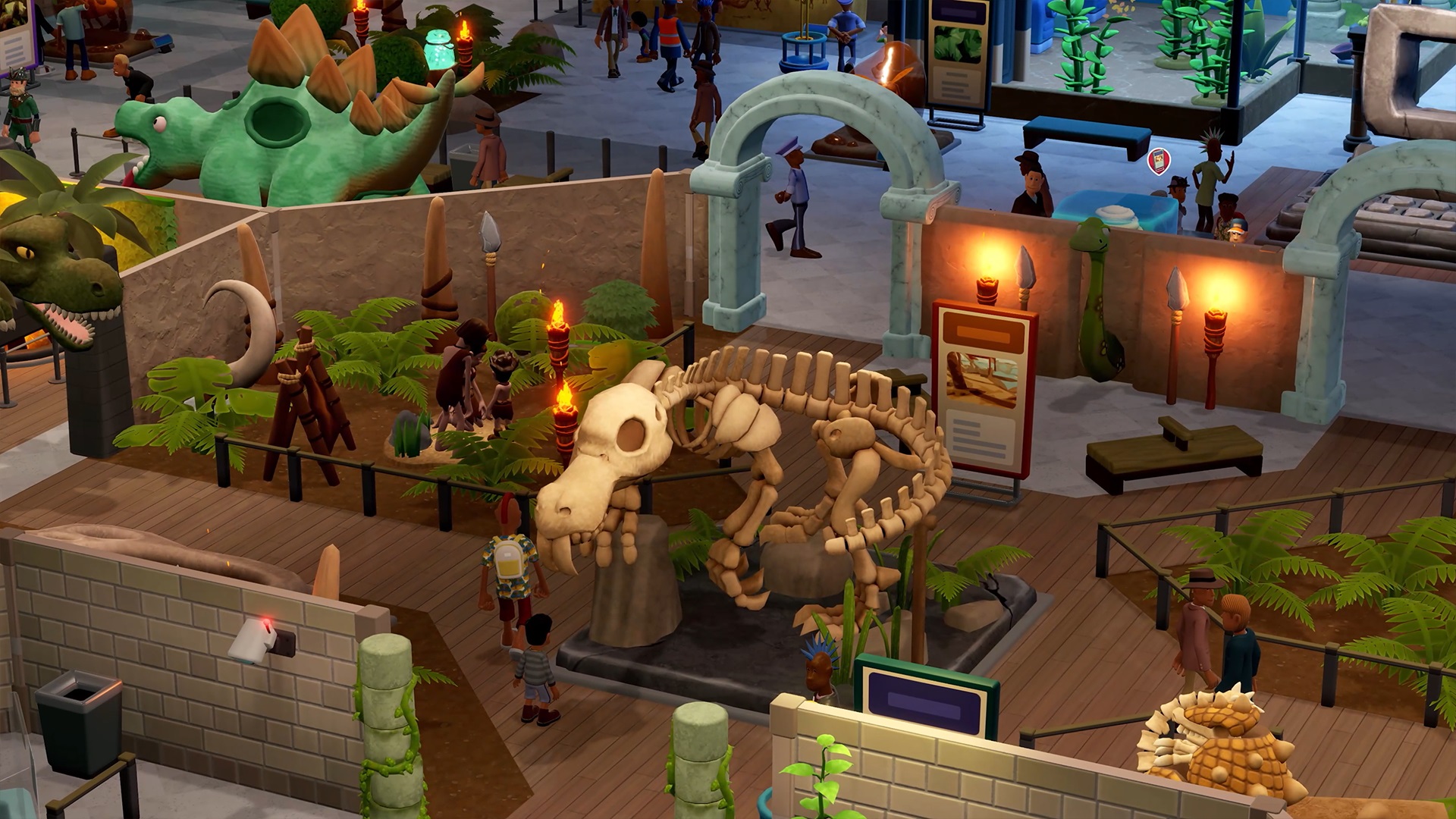
In the past I've managed my own healthcare system to help cure unusual diseases in Two Point Hospital. Some years later, I built up a university in Two Point Campus to bring education to the masses. Now, I'm getting to feed my history and archaeology-loving heart thanks to the newly announced Two Point Museum. Just 10 minutes into my hands-on time with the alpha build of the game, I'm sending one of my intrepid prehistoric experts on an expedition to discover and bring back fossils I can put on display. As the museum curator, part of my management role sees me set up these expeditions across a world map from a helipad just outside the building.
Every trip poses different risks to my employees - from snake attacks (why did it have to be snakes?) to quicksand - but it's the only way I'm going to be able to build up my collection of exhibitions, and in turn create more buzz for my museum. My expert may return a little worse for wear in the end, but that's nothing a bit of R&R in a staff room I built shortly before can't fix. My reward for their efforts is a crate with a fresh prehistoric find: a floppy disk.
Yes, this is every bit a Two Point game, from its goofy charm and sense of humor, to its entertaining management sim loop. But with oodles of customization options, different museum themes, and new features such as exploration and discovery in the mix, there's added depth and variety that already promises to keep me more invested than ever. From speaking with the team at Two Point, it's clear this entry is going all in on giving you tools to make this museum uniquely your own: "We kind of realized quite early on that we want these museums to have a lot more depth to them," design director Ben Huskins says, "and for you to get attached to them and feel like you want to come back to them time and time again."
Dust off
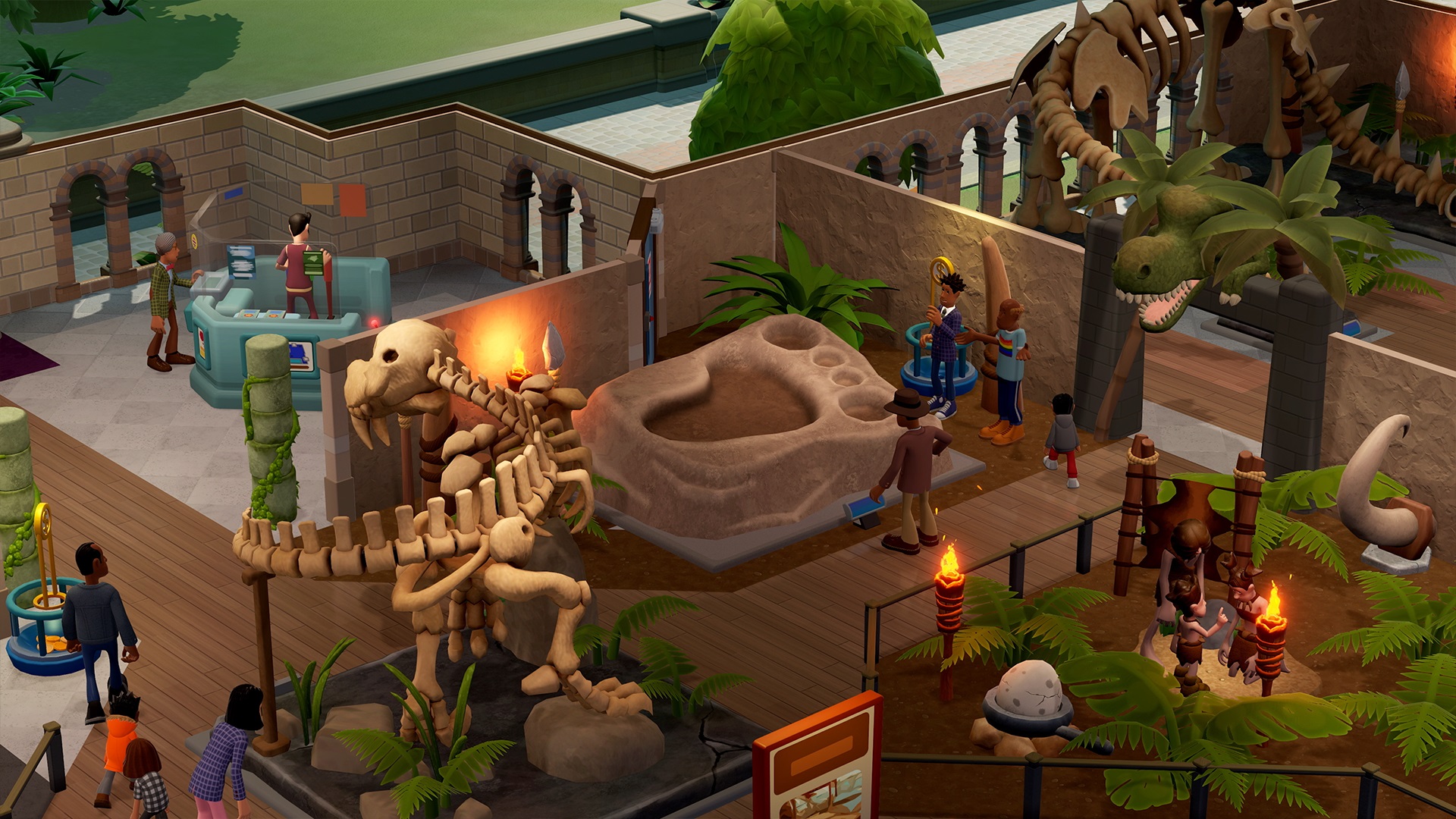
After spending three hours with Two Point Museum, I can safely say that I came away from the experience wanting more. The demo begins much like Hospital or Campus, with a tutorial guiding me through the initial set up of my museum to establish its key features. After setting up a ticket kiosk to get visitors to pay for entry, I set down my first fossil of an oversized footprint. Once I place donation spots near my exhibits to get more funds coming in, I sit back and watch with glee as my museum starts to come alive with my first paying guests.
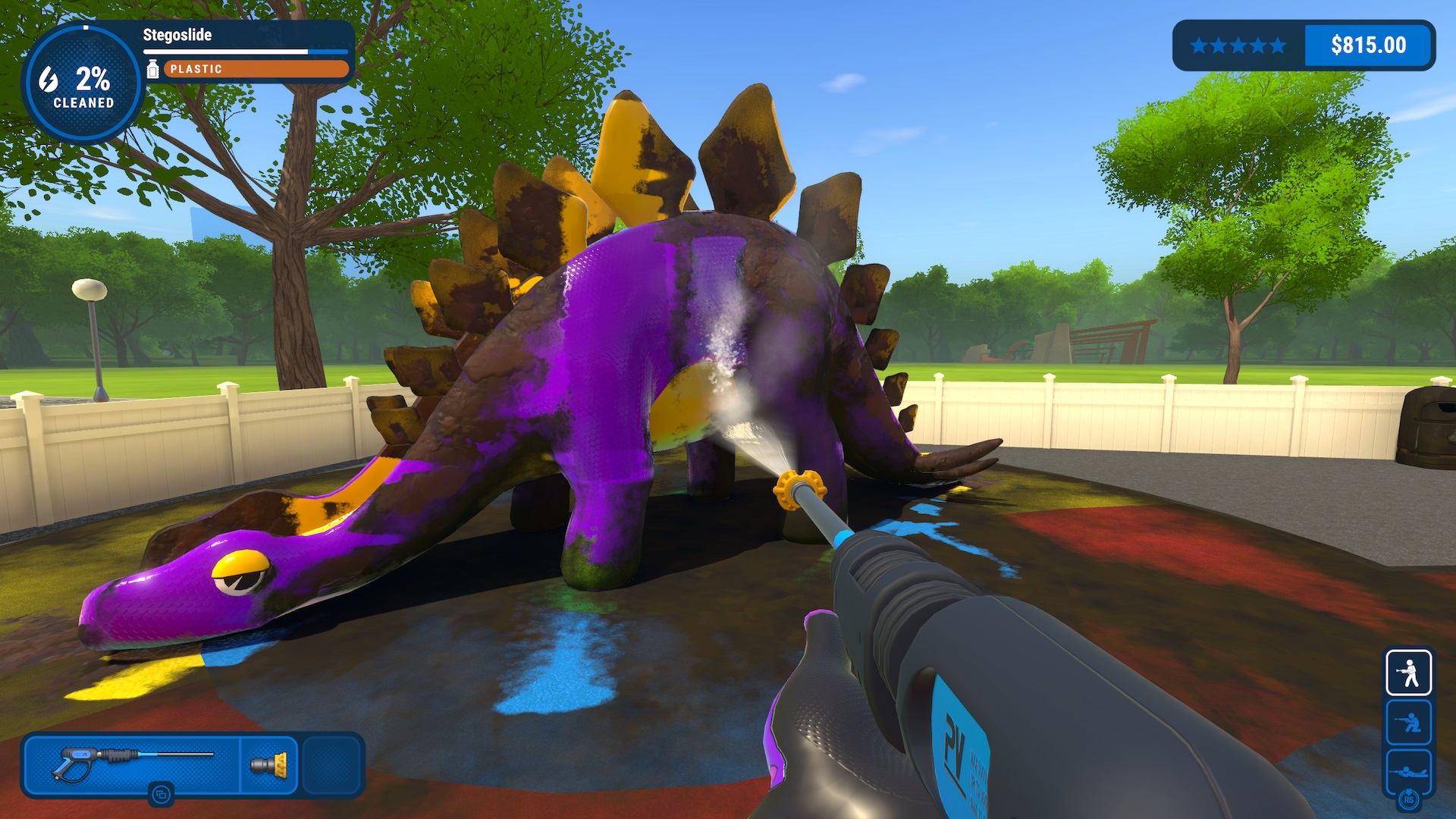
Of course, this is all about educating visitors, so putting information boards near the fossils is key to increasing the museum's knowledge rating. The tutorial makes it easy to get to grips with everything quickly, and it's very easy to rotate, angle, and customize any object I add to my display floor to my liking. I instantly feel like I'm in charge of every aspect, and I love how all of the simulation mechanics capture the museum-going experience so well.
The more exhibitions I have, the more buzz I generate, which brings in higher volumes of guests. That means that I need to do more expeditions to increase the amount of prehistoric eye candy on display. Each time an expert returns successfully with a find, I rush to click on the crate housing their discovery. Opening the box with a satisfying pop to reveal what's inside never gets old - no matter how many times I do it.
Early on, I get my hands on the torso of a dinosaur skeleton and immediately give it pride of place, surrounding it with rope barriers and decorations to emphasize its historical significance and rarity. It's only by doing more expeditions that I can find the rest of the dinosaur, but nothing beats the feeling of accomplishment when I finally see it complete after a series of trips. It really makes me feel like I'm curating this collection, not just in the time I've put in to find these fossils, but in the care I've taken to display them and try to wow my guests.
Care and curation
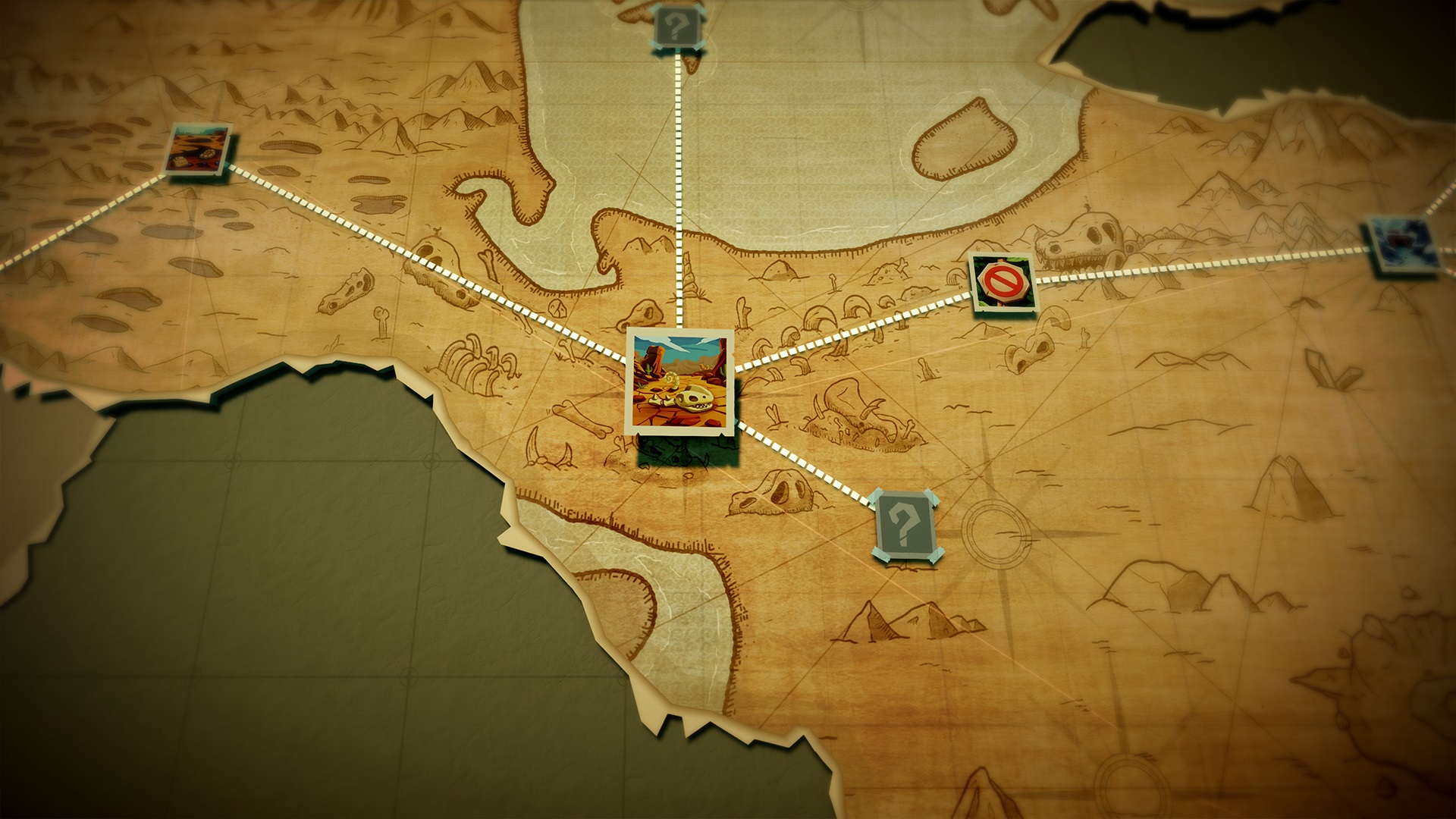
The exploration and collecting aspect immediately sets Two Point Museum apart from previous entries, but so too does the introduction of the endless star scoring system. In Two Point Hospital, you would have to hit a 3 star rating in order to progress on to the next hospital and expand your operation. By breaking away from that in Museum, Two Point is trying to encourage you to tweak and change up your museum as you increase your collection. The hope is that you'll become more attached to the place you've created both because you've put in the effort to find and complete more exhibitions, and you're also spending more time tweaking your layout as you discover more.
"Because you don't buy exhibits, you can only get them on expeditions, they are inherently more meaningful," lead designer Luke Finlay-Maxwell says. "So we wanted you to spend a longer period of time with them. With the dinosaur bones, that's a long term project to complete. And there's similar things as you go on. It's just this sense of, 'I'm slowly working with these things that I've got and making them better'. And I can see that over time, that in this space, it's just growing and growing and getting better and better and better."
"In previous games, the limiting factor was usually your money," Huskins adds. "So in [Two Point] Hospital, it was very easy to just go, well, I'll just copy and paste that treatment room, and then suddenly I've got a row of five treatment rooms, right? And you can't do that in the Museum. So it takes time to expand your museum and there's a lot more scope for noodling around with decorating, customizing, thinking about where everything fits in the flow of your visitor journey, and optimizing that later on."
As executive producer Joe Koehler explains, the team made sure that all of the tools are approachable and easy to use when it comes to redecorating and redesigning your museum when you do add to your collection. "I do it all the time," Koehler says, smiling. "I get a new sub category [of fossils], and then I'm like, 'Oh no, I need to pause the game and rethink this whole thing'. We've tried to make that so it's fun and it's easy to make it [your museum] look good."
Cause and effect
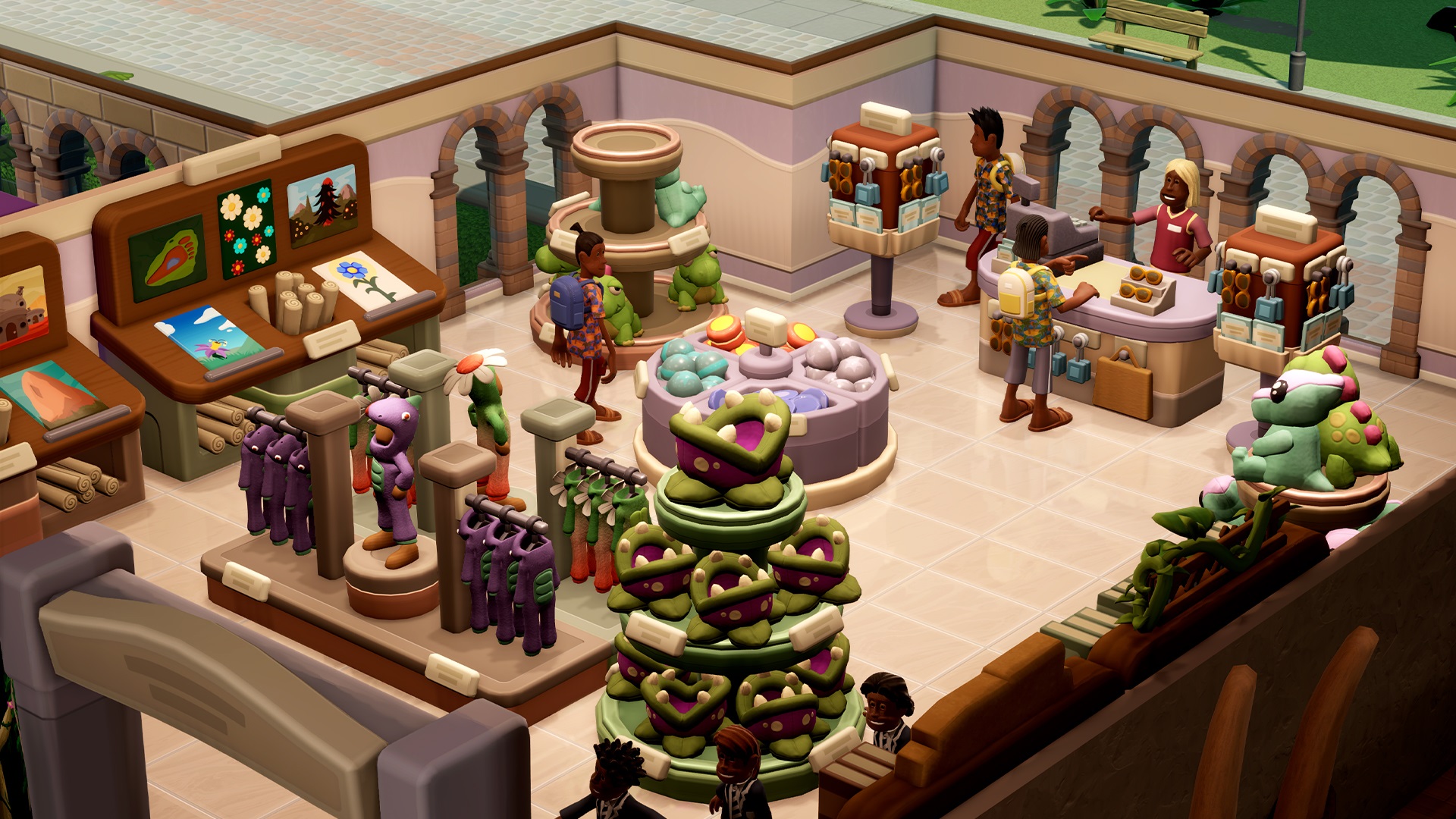
As Huskins tells me, co-founder and technical director Ben Hymers initially came up with the idea of setting the new entry in a museum. The team then jumped at the chance to put the studio's "stamp" on what it means to run one, and got creative and playful with the various artifacts to present novel challenges. With several different museum themes to progress towards as you complete objectives and explore, I only got the chance to experience the prehistoric world, but even within that one theme, there are subcategories you manage in different ways.
To begin with, I was finding amenities and dinosaur bones I had to ensure my experts were maintaining. But I soon unlocked frozen fossils, which are encased in ice that can melt if you don't place down air conditioning units. From a frozen caveman to a beehive, each one can cause some chaos if you let them thaw.
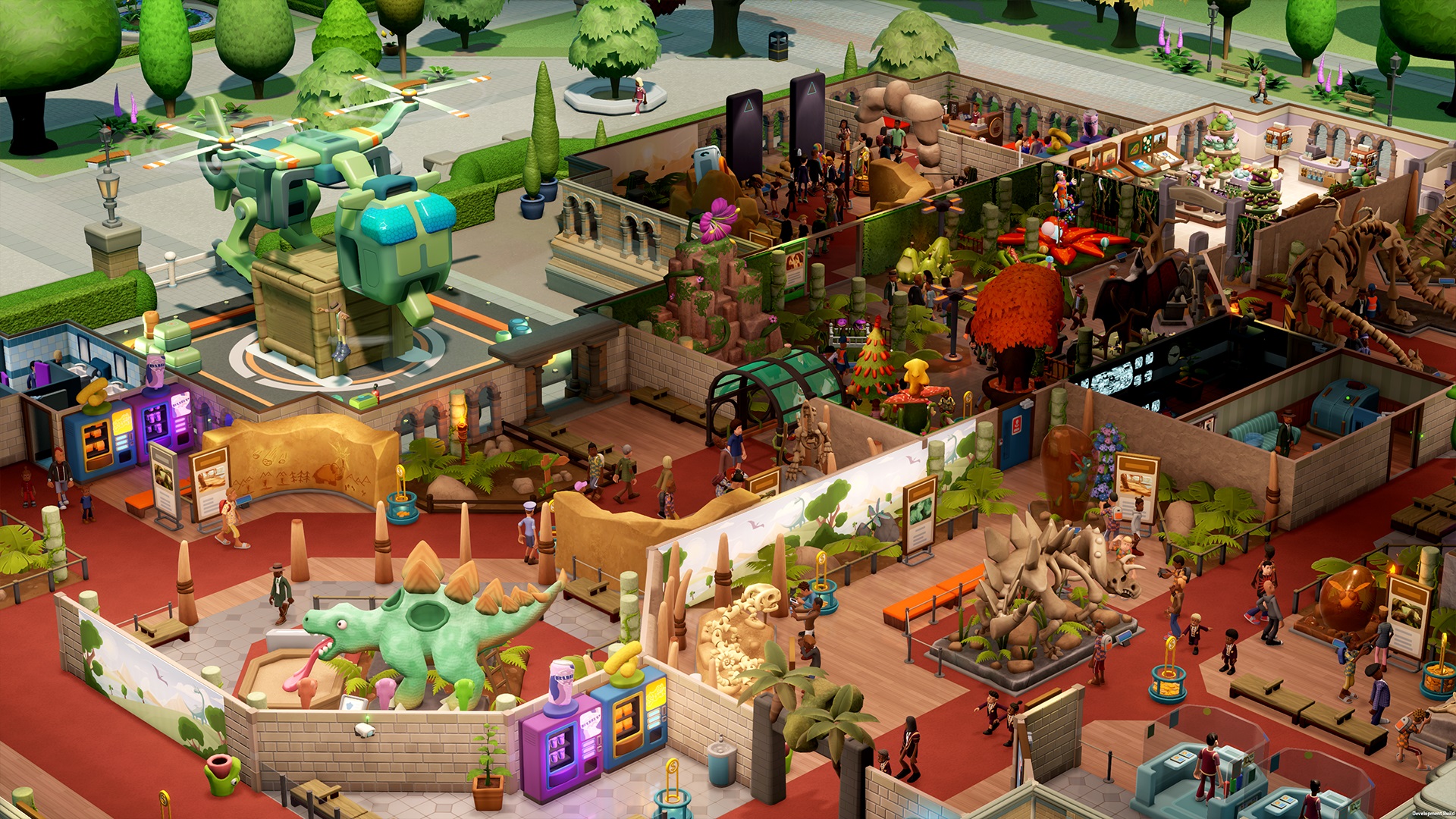
"Every time you find a new subcategory, new theme throughout the game, you're constantly getting faced with new and interesting things"
Luke Finlay-Maxwell, lead designer
"Within the themes, we try to make sure that each subcategory has some kind of interesting mechanics," Finlay-Maxwell says. "So with frozen stuff that can melt, with bones you're building them, and I think we've tried to maintain that as we go, so that every time you find a new subcategory, new theme throughout the game, you're constantly getting faced with new and interesting things that you have to deal with."
Speaking of chaos, Two Point Museum is the first game in the series to introduce kids as potential visitors. This brings a new layer of challenge to the experience, since you have to cater to them and make sure they don't, as Huskins puts it, "get their grubby hands on your exhibitions". As I progressed further, I unlocked a workshop to develop interactive displays for visiting families, including a prehistoric playground to keep kids entertained.
I've only gotten a taste of what's in store in Two Point's new sim, but from what I've experienced so far, I can't wait to see where I can take my museum. From the way it plays around with historical themes to the sense of discovery and customization it offers, Two Point Museum already has the makings of becoming my next obsession.
Look ahead to all of the exciting future releases with our roundup of new games for 2024 and beyond.






